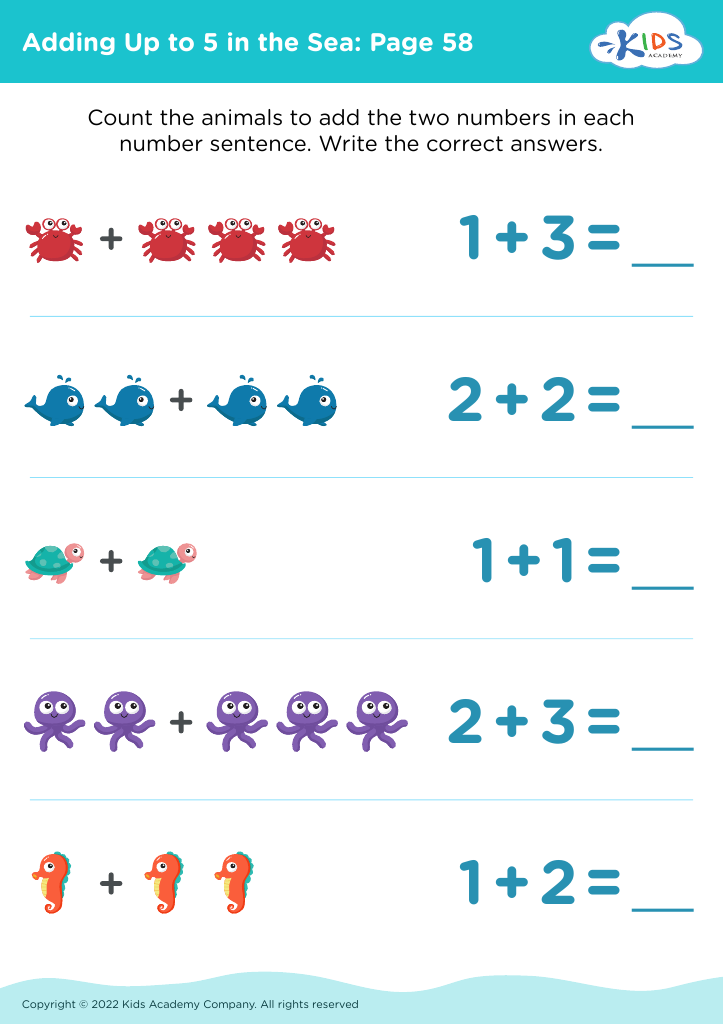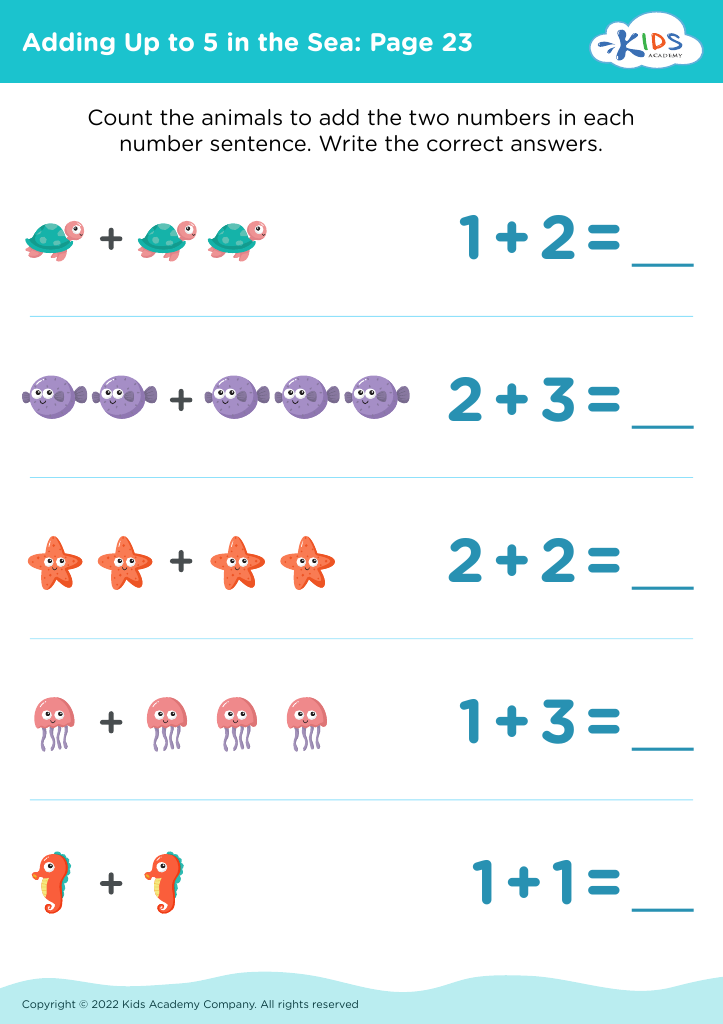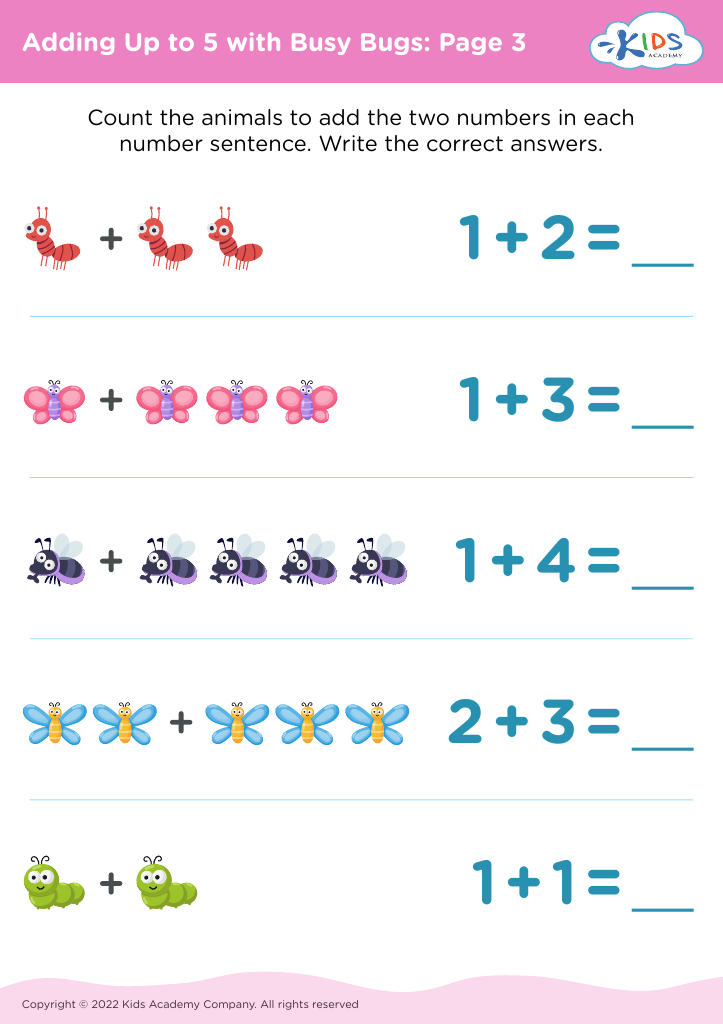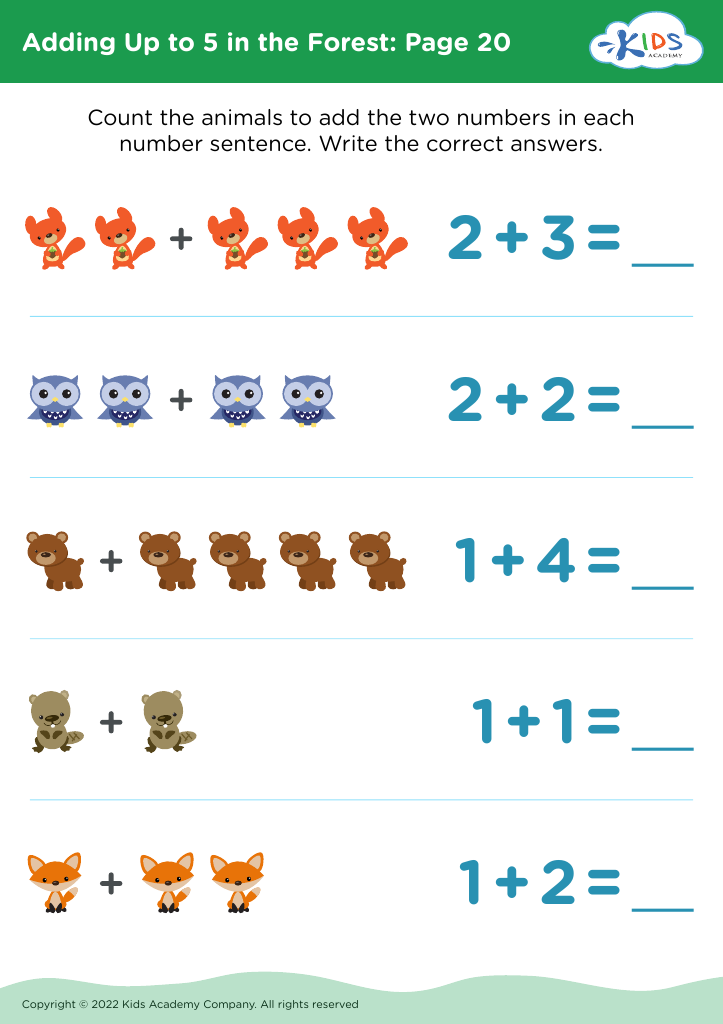Understanding numerical values Addition & Subtraction Worksheets for Ages 3-8
4 filtered results
-
From - To
Explore our "Understanding Numerical Values: Addition & Subtraction Worksheets" designed for children ages 3-8! These engaging, printable worksheets introduce young learners to the foundational concepts of numbers, enhancing their skills in addition and subtraction. By practicing with colorful and interactive exercises, kids will develop a strong grasp of numerical values while building confidence in math. Our resources cater to various learning styles, ensuring that every child can excel at their own pace. Perfect for home or classroom use, these worksheets make math fun and accessible. Start your child's math journey today with our expertly crafted materials!
Understanding numerical values and the concepts of addition and subtraction is foundational for children aged 3-8, as it lays the groundwork for their overall math skills. Parents and teachers should care about this because these early mathematical concepts are crucial for cognitive development and daily life skills.
At this formative age, children are naturally curious and eager to explore numbers through play, songs, and stories. Engaging them in these activities encourages a positive attitude toward math. Mastering addition and subtraction not only builds their confidence but also fosters problem-solving abilities that are applicable in various contexts, from counting toys to sharing snacks.
Additionally, early mastery of these concepts enhances children's readiness for more complex math in later grades. Research shows that kids who grasp basic numerical values tend to perform better academically. Parents and teachers play a crucial role in providing opportunities for hands-on learning experiences, discussions, and practical applications that help children understand these concepts in real-life situations. By prioritizing numerical understanding, we help children develop a lifelong appreciation for math, equipping them with skills essential in an increasingly numerate world.
























